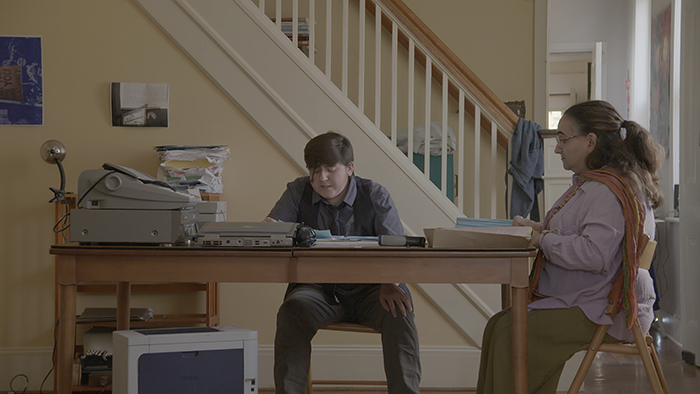In April 2016, Studio Voltaire presented a major new commission by Sharon Hayes, the artist’s first exhibition in a UK public gallery.
Sharon Hayes (b.1970 Baltimore, US) uses photography, film, video, sound and performance to examine the intersections between the personal and the political. Drawing particular attention to the language of twentieth-century protest groups, Hayes invites viewers and participants to re-experience moments of political and cultural oppression by staging protests, delivering speeches, and re-performing demonstrations.
More…
…
For her commission at Studio Voltaire, her first in a UK institution, Hayes looked specifically at queer and feminist archives in the US and UK which document gay rights, and women’s liberation. Working with both the content and display of archives, Hayes re-staged some of the most affective forms of presentation she encountered.
Hayes built a new large-scale installation that completely bisected the gallery. The structure referenced hoarding and notice boards used as sites of communication for protest and action groups, upon which she presented a new 6-channel film.
Hayes also created a large-scale wall drawing, based on content from newsletters and DIY magazines using reproduced and reconstructed posters, maps, calendars, prints and photographs. The artist was interested in the moments in which communities are built and ideas are shared through the action of reading.
Through these methods of enactment the artist engaged in what she called “speech acts”, highlighting the friction between common activities and personal actions to examine how collective consciousness is built. The transformative power of language is discernable throughout the artist’s multi-disciplinary practice.
Hayes is interested in the limits of gender as well as the historic and contemporary ways in which feminist and queer political collectives continually expand and constrain gender expression. These new works served to interrogate the genealogy of our current moment in feminism and queer politics, paying particular attention to the persistent violence that attends women who claim attention in a public space.
The title of this new commission was derived from two sides of an Anita Bryant record (Side A: In My Little Corner of the World; Side B: Anyone Would Love You). Bryant, a US entertainer and Orange Juice spokesperson, became the leader of an anti-gay campaign in 1977 and was subsequently vilified by gay rights groups for doing so.
This exhibition formed part of How to work together and was co-commissioned with The Common Guild in Glasgow. This commission was supported by Charlotte Ford, Haro & Bilge Cumbusyan and Valeria & Gregorio Napoleone.












